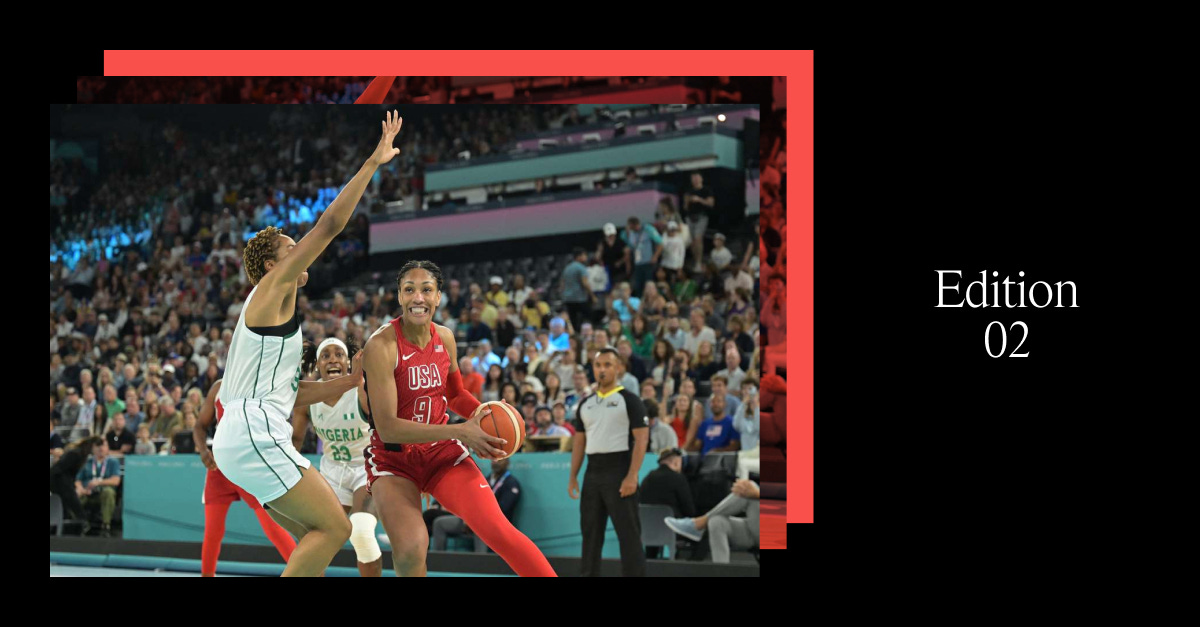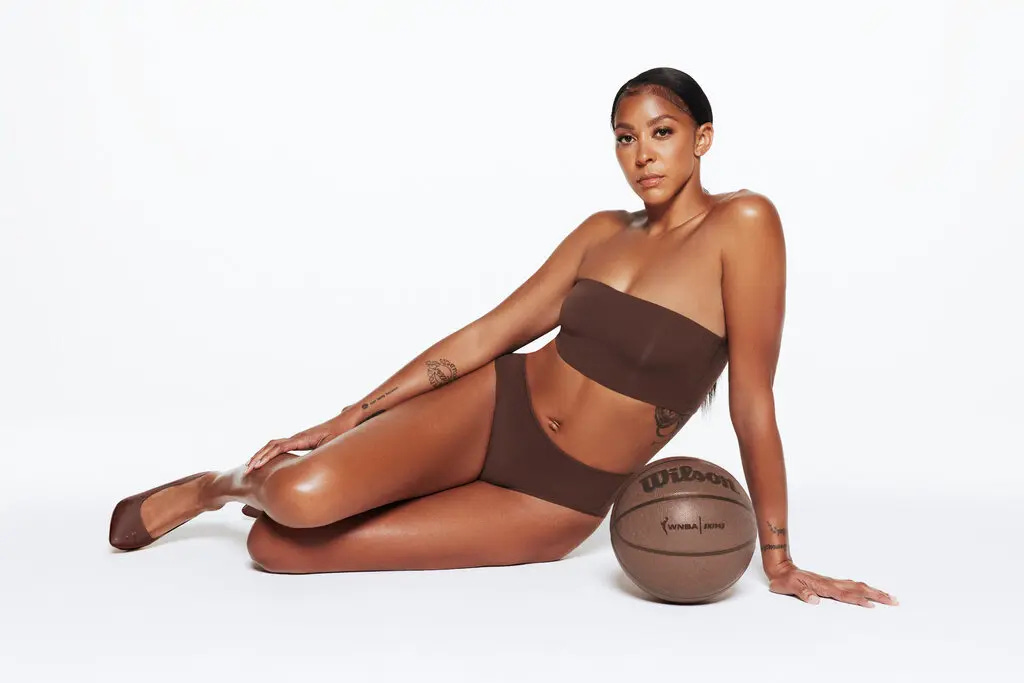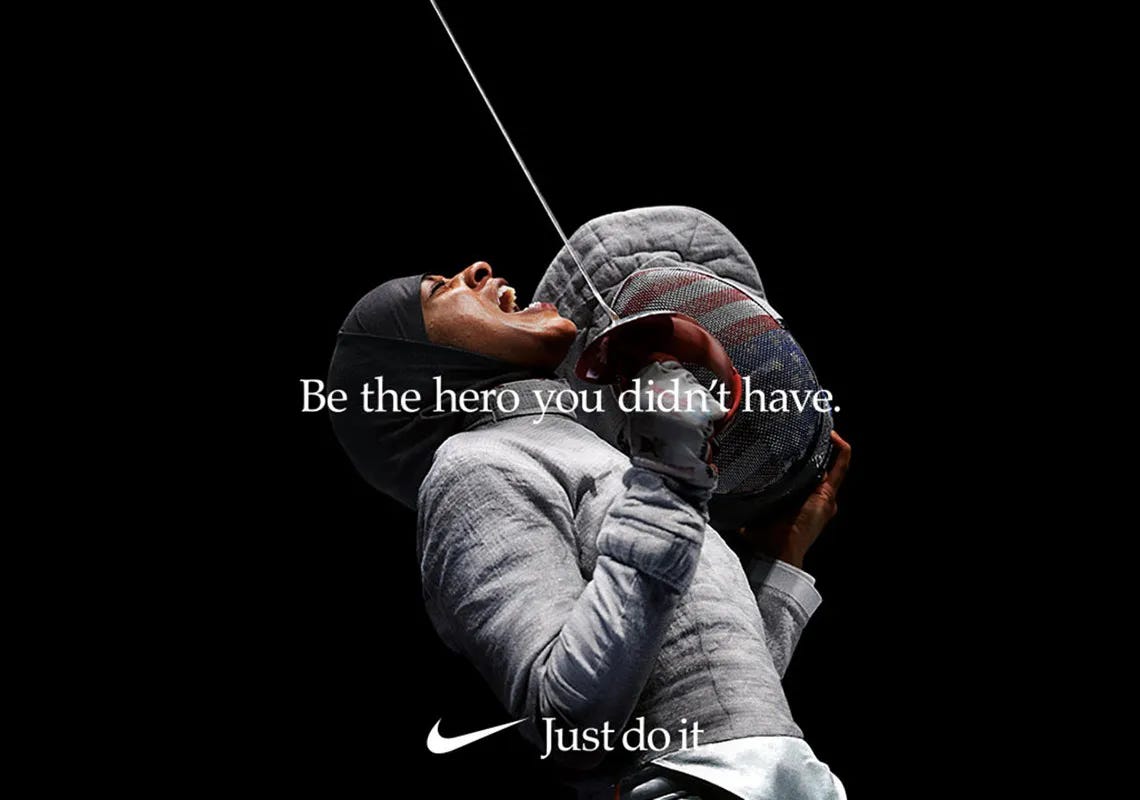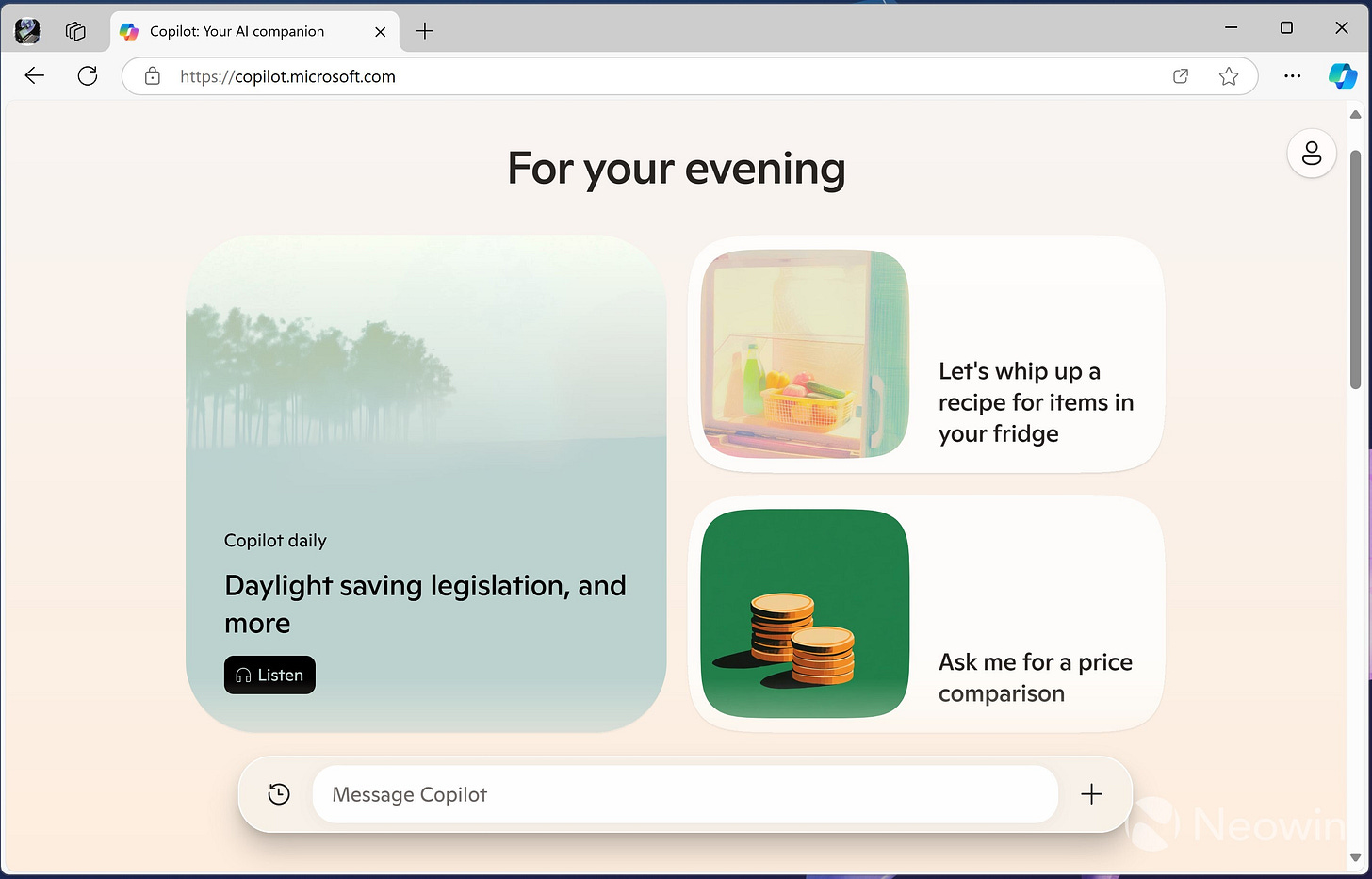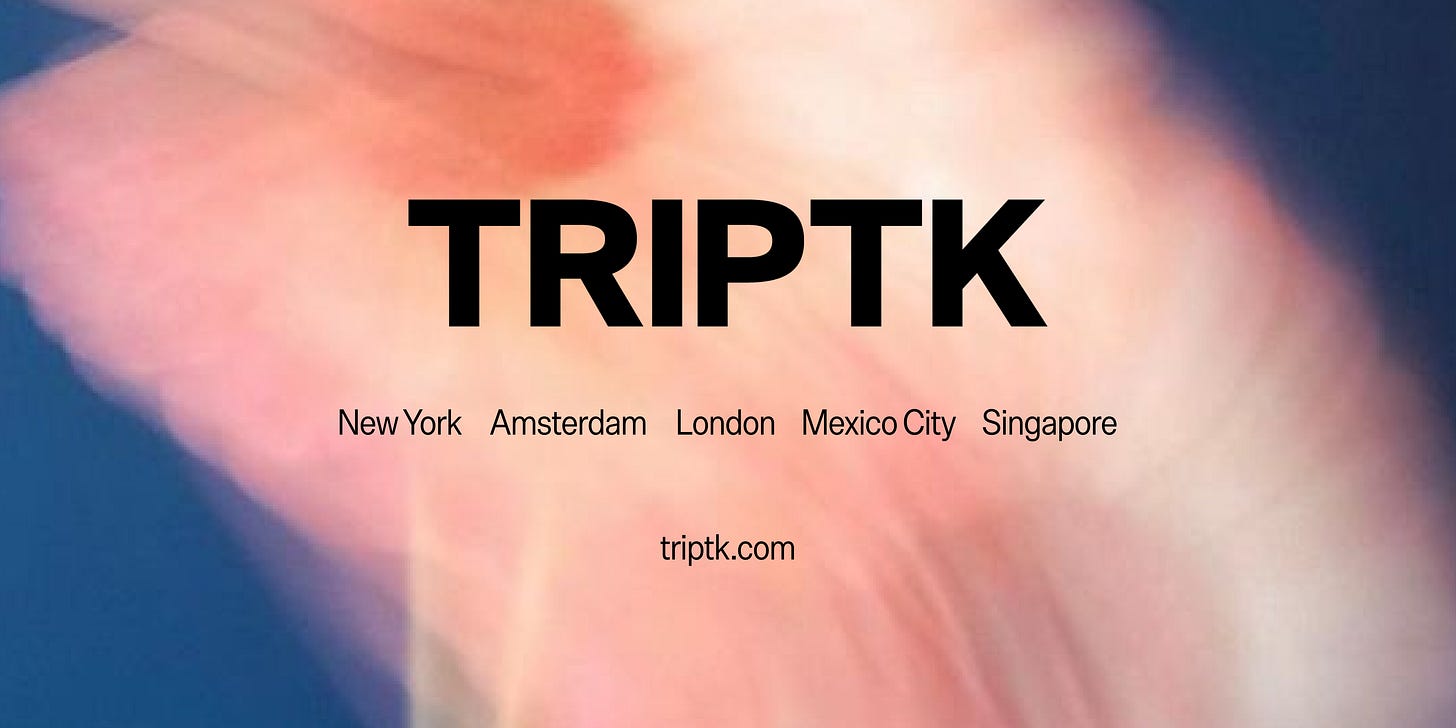Welcome to the W: Decoding the Paradigm Shift in Women’s Sports
It’s just like the viral t-shirt says: Everyone watches women’s sports.
Each issue of Codex, written by a different member of the TRIPTK team, digs into the ephemera, artifacts, case studies, and conversations most interesting to them at the moment.
It’s for readers who want to give more to culture: to contribute vs. appropriate, embed vs. watch from afar, lead vs. follow. Follow along for the ride.

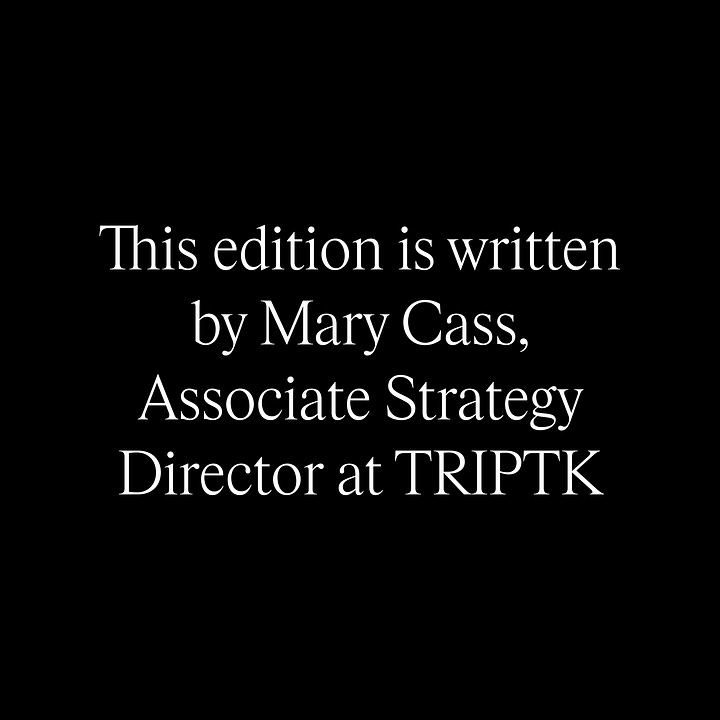
Decoding the paradigm shift in women’s sports
I’ve been a women’s basketball fan for a long time.
Well before Caitlin Clark ever stepped foot on a college campus, I was dragging my friends to games and convincing bartenders to put the WNBA on TV.
I couldn’t understand why more people weren’t interested. Yes, the women’s game was different from the NBA. It was faster. Sharper. Better.
But after many years, women’s basketball is finally getting its due. Last year, 20 million people watched the NCAA women’s championship—more than the NCAA men’s final, and more than any NBA game since 2019. And this year’s record-breaking WNBA season was its most-watched in 24 years.
And it's not just basketball. From tennis to the NWSL, women’s professional sports are on a tear. This summer, millions tuned in to watch the first Olympics with full gender parity. Wherever you look, there’s a groundswell of excitement spilling over into everything from track & field to women’s ice hockey.
It’s just like the viral t-shirt says: Everyone watches women’s sports.
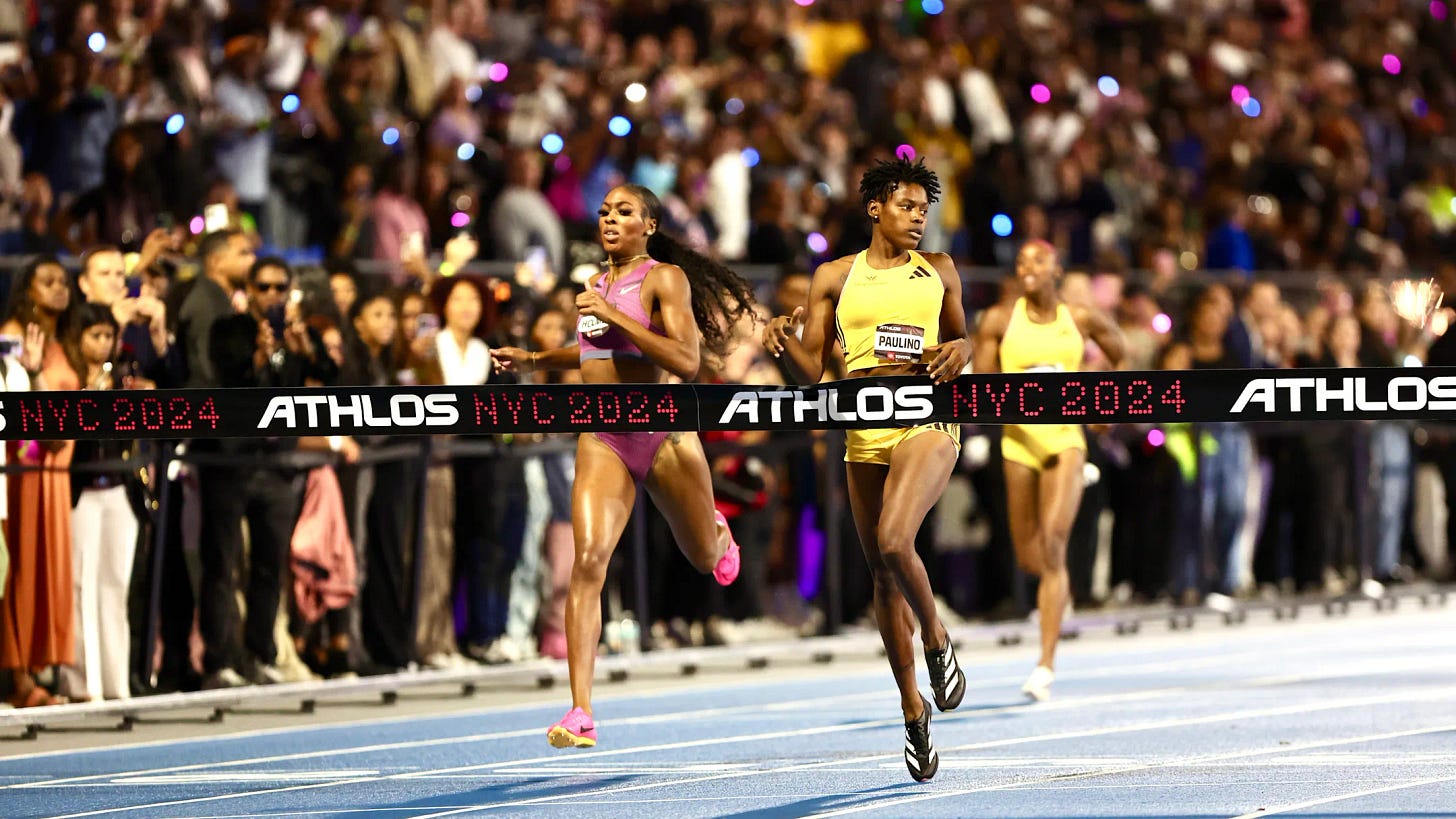
It’s safe to say that women’s sports are no longer the next big thing—they’ve arrived. After years of being overlooked, underpaid, and undervalued, professional women athletes are enjoying a long-overdue moment in the spotlight.
Yes, there’s still work to be done. On average, male athletes still make 21x more than women. And as the WNBA playoffs kicked off, reports of racist fan behavior dampened the excitement, as an influx of new fans flooded into a sport historically led by Black and queer athletes.
But it’s hard to understate the cultural impact of this moment. As women’s sports take their place in pop culture and fandom, they’re changing how we think about gender and athleticism. They’re challenging harmful, lingering stereotypes about women. They’re unlocking more opportunities for girls—and unlocking massive new audiences along the way.
Recoding the billion-dollar opportunity
According to Deloitte, women’s sports revenues are predicted to surpass $1 billion for the first time ever this year. Brands are lining up for a piece of the opportunity—but to connect with audiences in this new paradigm, they must adopt new rules of engagement.
It’s no longer enough to treat women’s sports as a feel-good charity case or preach blandly about gender equality. And it’s certainly not enough to take the men’s playbook and turn it pink. Today’s women’s sports fans are engaged not only in the game, but in the community. We want to hear from athletes, and see representation of women in all forms—beautiful, gritty, triumphant. And we want brands to genuinely engage, and to help drive progress.
In the world of the WNBA, three brands get my gold medal for this season:
State Farm: For not just slapping their logo on the court, but embedding Jake from State Farm as a deeply engaged presence across the sport.
Skims: For turning tired tropes about female athletes on their head and showing that beauty goes hand-in-hand with grit, determination and strength.
Nike: For capturing the authentic fan experience in “Glad You Could Join Us,” a campaign that gave voice to long-time fans welcoming an onslaught of new fans into the sport.
The WNBA finals may be almost over, but the future is just beginning. Game on.
Worthy recommendations from Mary Cass
Each issue, we share a series of recommendations from our team—both cultural artifacts (podcasts, books, essays, movies, playlists) and more philosophical pursuits (questions, processes, advice).
Brand? Playa Society
Founded by artist and former Division 1 center Esther Wallace, Playa Society is on a mission to put women’s sports in the streetwear spotlight. The buzzy label dropped collaborations with both the WNBA and the Olympics this year.
Advice? De-centering men in sports
To truly shift perceptions of the role of women in society, we must be willing to challenge conventions. Who says men get to be the default? Asking your friends if they’re following the latest on men’s soccer or the MNBA is the kind of low-stakes trolling we can all get behind.
Podcast? Sixteenth Minute (Of Fame)
Every podcast Jamie Loftus makes is thoughtful, provocative and funny. Her latest, “Sixteenth Minute,” features interviews with viral characters like the Boston Slide Cop and serves as a musing on internet culture and micro-celebrity. Follow with Lolita Podcast, which decodes our weird cultural obsession with the infamous novel.
Links shared this month in Slack / over text / in decks
Female soccer players are a new kind of influencer (Washington Post): “Players in Mexico’s Liga MX Femenil are attracting millions of social media followers while challenging gender norms in the traditionally macho country.”’
What’s the Deal with Tenniscore? (The Sweat Lookbook): “Between the rise of the exercise dress and prep’s Saturn Return, the foundation was laid for tenniscore’s ascendance.”
Inside the cold, capitalistic world of ‘business astrology’ (Dazed): “In astrology circles, there’s a popular quote (apparently) from JP Morgan that goes: ‘Millionaires don't use astrology; billionaires do.’”
The Ad Industry's Largest Agencies Are Still Hooked on Big Oil (Adweek): “When it comes to climate and sustainability, too much of the ad industry has not changed since the Mad Men era.”
Why AI Isn’t Going to Make Art (The New Yorker): “The task that generative AI has been most successful at is lowering our expectations, both of the things we read and of ourselves when we write anything for others to read.”
Microsoft gives Copilot a voice and vision in its biggest redesign yet (The Verge): “At Microsoft AI, we are creating an AI companion for everyone,” says [Microsoft AI CEO Mustafa] Suleyman. “I truly believe we can create a calmer, more helpful and supportive era of technology, quite unlike anything we’ve seen before.”
Earlier this year, TRIPTK worked with the Copilot team to refine their internal vision and brand strategy. We’re excited to see Microsoft continue to innovate on the product, finding new ways to unlock value for users while pushing the role of AI in culture forward.
About TRIPTK & Codex
TRIPTK is a brand & innovation consultancy. We partner with leaders to decode and recode critical cultural shifts, creating brand value for today and tomorrow.
Codex is a monthly newsletter sharing the TRIPTK perspective. It’s for readers who want to give more to culture: to contribute vs. appropriate, embed vs. watch from afar, lead vs. follow.
Any outsized opinions expressed here are solely the authors and do not represent the opinion of the company. If you like this newsletter, consider subscribing – or sharing with others who might enjoy it. Feel free to comment, email, say hey, and/or send us things to read.



